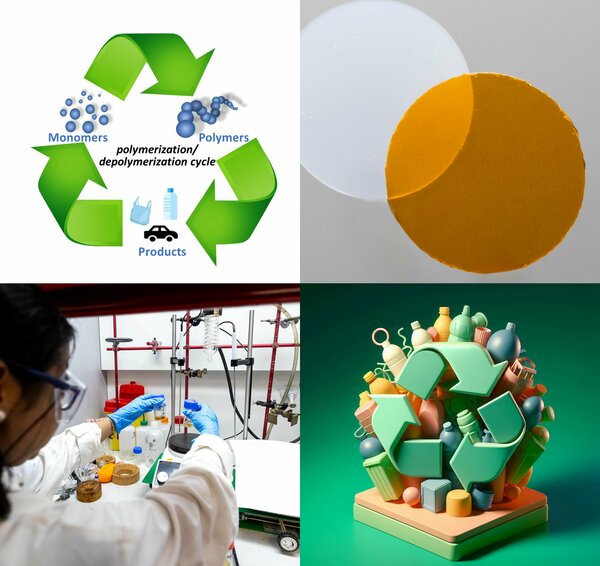
A fundamental transition is required to establish a circular plastics economy. We follow a design for recycling approach, in which we create novel polymeric structures that are more amenable to chemical recycling. Through implementation of cleavable chemical bonds into the polymers’ scaffold, we achieve quantitative depolymerization back to the original monomers on demand under energy-efficient conditions. As the monomers are recovered in high purity and yields, they can immediately be reused to prepare fresh polymers with identical properties as the original ones. This closed-loop chemical recycling strategy paves the way for establishing a circular economy for polymers, which is a cornerstone of sustainable future. In addition, we develop upcycling processes, in which polymer waste is converted to useful building blocks to produce new value-added polymeric materials.
We follow the principles of green chemistry during the design stage of new projects. Thus, we employ bio-based reagents for the synthesis of new types of monomers. Furthermore, we avoid, whenever possible, the use of potentially harmful organic solvents for polymerization reactions by performing these steps either completely solvent-free or with the aid of environmentally friendly solvents.